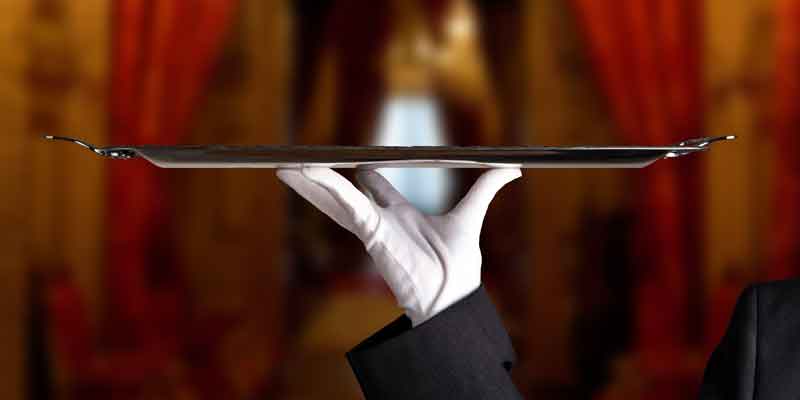Once upon a time, there was a brat named Phil T. Rich. He grew up with everything a kid could want. He had every gadget imaginable, a house that rivaled the Disney castle, and parents who gave him free rein to do whatever he wanted. Unfortunately, his parents were rarely around for him — they had high-powered jobs, you know. And when they weren’t working “killer hours,” they were off to the club to play golf and trade gossip with friends. Phil knew that he wasn’t like the other kids. Whenever he wanted something, he snapped his fingers and it appeared — like magic. He didn’t have to work hard in school because he knew his parents would pull strings to get him into college and ultimately he’d be top dog in their business one day. The only problem was that Phil was totally dependent on his parents.
If the story ended here, you might be jealous. BUT, then it happened . . . Phil’s parents thought they could double the size of their business by buying a competitor. While the transaction looked great on paper, in reality it had some serious shortcomings. And, before you could blink an eye, their entire business was on life support. Unfortunately, Phil’s family lost everything. Phil thought he had it “made,” but life as he knew it was gone forever.
Poor Phil. He was so ill prepared to face the “real world.” While Phil thought he had the world by the tail, he was never prepared to earn the rewards himself. Unfortunately, this is a sad story without a storybook ending.
The motto of this story is that “Helping people too much only makes them helpless.”
What Are Your Thoughts? Feel free to share your comments.
This is adapted from Follow Your Conscience: Make a Difference in Your Life & in the Lives of Others By Frank Sonnenberg © 2014 Frank Sonnenberg. All rights reserved.
Additional Reading:
10 Ways That Helping People Makes Them Helpless
Tough Love: A Lifelong Gift
8 Ways to Build a Strong Foundation for Your Kids
Kids Don’t Come With an Instruction Manual
If you like this article, subscribe to our blog so that you don’t miss a single post. Get future posts by RSS feed, email or Facebook. It’s FREE.







I wonder why the word,” filthy,” is associated with being rich? Nasty, dirty money or greed? Just a thought.
Have a nice day. Joan
Hi Joan
I used the phrase because the character in the fable is Phil T. Rich –– a little boy who had life handed to him on a silver platter (or so he thought)
To answer your question, according to The Phrase Finder here is the origin of the expression. http://www.phrases.org.uk/meanings/filthy-rich.html
“This little phrase can’t be explained without looking at the word lucre. From the 14th century lucre has meant money and is referred to as such by no less writers than Chaucer and John Wyclif. These references generally included a negative connotation and gave rise to the terms “foul lucre” and “filthy lucre”, which have been in use since the 16th century. “Filthy lucre” appears first in print in 1526 in the works of William Tindale:
“Teachinge thinges which they ought not, because of filthy lucre.”
Tindale was here using the term to mean dishonourable gain.
Following on the the term “filthy lucre”, money became known by the slang term “the filthy”, and it isn’t a great leap from there to the rich being called the “filthy rich”. This was first used as a noun phrase meaning “rich people; who have become so by dishonourable means”. It was used that way in America, where it was coined, from the 1920s onwards. Here’s an item from the Ohio newspaper The Lima News, February 1929, which deplores the get-rich-quick attitudes of some who were exploiting those who had to sell their homes at unreasonably low prices in order to eat during the economic crash:
“There is a depressed market. If any of our stock-gambling filthy rich want a winter home, now is the time to acquire it.”
As time went on the negative associations have softened somewhat. It has become to mean “extremely rich” rather than “dishonourably rich”, although there may still be a trace of an unfavourable implication associated with it.”
Have a nice day.
Best,
Frank
Interesting. Though I don’t think the motto “Helping people with too much kindness only makes them helpless.” actually fits his story since he wasn’t getting help; he wasn’t getting kindness. I do understand the point and the lesson – but I remain hopeful for Phil. After all, he may stumble on your blog and turn his life around. 🙂
Hi Skip
Parents want the best for their kids. Some people show their love by showering their children with gifts while others hover over them ensuring success. (On the East coast we call them helicopter parents.) In any case, when we do everything for our kids rather than let them do for themselves, we make them totally dependent on us. The adage, “Give a man a fish and you feed him for a day; teach a man to fish and you feel him for a lifetime” certainly applies here. I hope this clarifies my point 🙂
Thanks for your thoughts! Have a great evening.
Best,
Frank